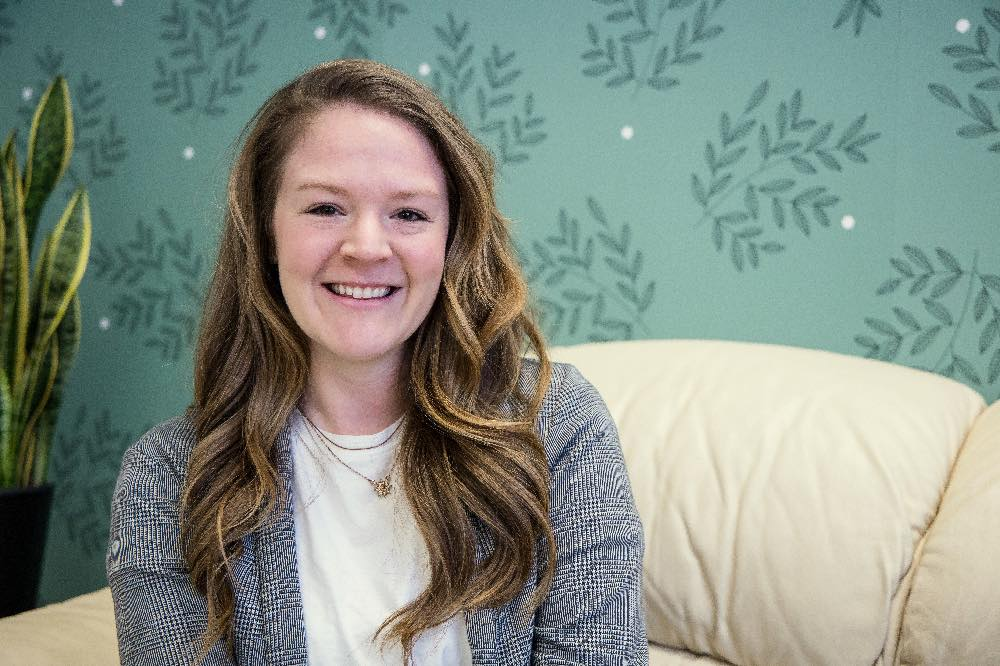The Ottawa Pastoral Counselling Centre is one of the five Anglican Community Ministries, but due to the confidential nature of counselling, their important work often goes unsung. This is a first in a series of articles introducing readers to the OPC’s team members, highlighting their work and specialties of their practices.
Mickeelie Farrell just joined the OPC team in June, and kids have a special place in her practice.
Does September and back-to-school stress increase calls for counselling?
The transition back into the school setting can be quite difficult for a lot of kids — some of those academic demands, especially for teens feeling the pressures in high school to figure life out. And there’s a lot of new social anxieties that kids and teens seem to be facing these days…. Every generation is different, but these are kids who grew up in school in years during a pandemic and that has radically changed things for them… At least for myself and my other colleagues who work with kids, we definitely see an uptick in appointments. Maybe not immediately at the beginning of September when school starts, but once things are settling in, some of the cracks or difficulties or challenges are starting to come up, then it can be a really difficult transition time for kids, parents, families as a whole.
I’ve worked with kids mostly age 9, 10 and up, a lot of teens and young adults as well. Really the purpose is, whatever they’re going through, to give them that safe place to just be seen and known and talk through whatever is coming up in their lives. Sometimes that’s with their caregiver or their parents, whoever their main attachment figure is, in the room. Sometimes not. It depends on what the family needs.
Do questions about managing screen time come up often?
Managing screen time has been a common issue that’s come up with some of my younger clients, especially. For teens, it seems to be a bit more normalized. They’re at an age in development where, they probably have a phone, and they’re probably on social media, but even the management of that can be quite tricky.
For some kids, [being online] is a much more comfortable space to exist than maybe the day-to-day social environments that they find themselves in. So trying to find that balance with kids and parents. ‘Okay, you feel safe online, but online isn’t always safe. And screens and loads of screen time aren’t always good.’ The tricky thing with it is it becomes such a regulator of emotion for a lot of kids.
So, it’s a question of how do we find a balance between the benefits of technology, the ways it connects us, the creativity it can really promote in kids and teens, but also being aware of the shadow sides and the dangers of it as well. The fact that real life is still happening around them and how do they how do they manage both in a way that’s healthy? How do parents and teachers and mentors and coaches and friends and friends’ parents help kids manage those two different worlds that they sometimes live in, remembering that both do exist and that kids are sort of in that tension between the two.
Are there lots of concerns about addictive algorithms?
I would say that that one isn’t generationally located. I think it’s universal, like how I see older generations interact with their Facebook feeds or even how my generation of Millennials when we got hooked on Instagram or even on TikTok and the addictive nature that it has in all of our lives. All of us have inevitably been caught in that late-night doom scroll where we’re just feeling flat and exhausted, can’t do anything else and then you get stuck in and the algorithm feeds on that….There’s also now AI to be added into all of that in many ways and layers. …All of us, I think, are struggling with it in different ways.
What do you find most rewarding in your work?
I have a lot of clients who are neurodivergent…seeing a rise [in the numbers of people] navigating that well with kids and families, whether it’s ADHD or ASD (autism), and families being really adaptive to their approach with kids and just letting kids have a space to breathe and find their way in the neurotypical world has been quite rewarding. I see lots of it, not just in my work with kids, but also late diagnosed adults as well. Seeing the shifts and maybe the move away from like stigma or some of the mixed messaging or the confusing messages that maybe my generation grew up with. Seeing a shift in knowledge and adaptations to meet kids’ needs in that way has also been cool to be a part of, but it is also just really rewarding to see kids find ways through life that are just different and nuanced and unique for each of them.
The OPC’s Counselling Support Fund helps support people impacted by mental health issues who lack the financial resources to access mental healthcare. To donate: theopc.ca/donate/


Saint Mary’s Church, Westmeath — Deanery of the Northwest